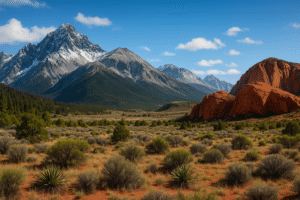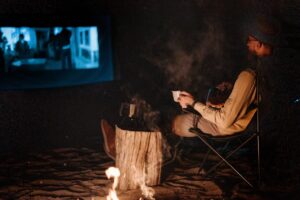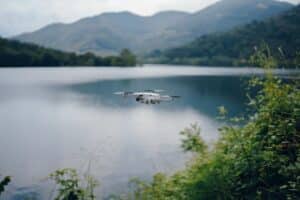Table of Contents
Exploring the outdoors doesn’t have to mean draining your bank account. With thoughtful planning and smart resource use, you can enjoy breathtaking adventures—hikes, road trips, camping, or mountain getaways—without overspending. Affordable doesn’t mean basic; it means strategic. Here’s how to plan unforgettable outdoor experiences while keeping your finances in check.
Why Budget Adventures Are Gaining Popularity
Rising travel costs and economic uncertainty have shifted focus toward affordable local exploration. Many travelers now prefer national parks, road trips, and weekend camping over international flights. The best part? These experiences often feel more authentic, grounding, and memorable.
Step-by-Step Guide to Affordable Outdoor Travel
Choose the Right Destination
Pick a location within driving distance to cut travel costs. National and state parks offer scenic beauty at a fraction of international prices. Research free or low-fee camping areas using official park websites or apps like Recreation.gov and Hipcamp.
Travel Off-Season
Avoid peak months when accommodation and entry fees skyrocket. Shoulder seasons—spring and early fall—offer great weather, fewer crowds, and lower rates. You’ll also get better campsite availability and cheaper rentals.
Smart Transportation Tips
- Carpool with friends: Share fuel and parking costs.
- Use public transport: Some parks offer shuttle access.
- Plan fuel-efficient routes: Apps like GasBuddy or Google Maps can help you find cheaper gas stations.
- Rent wisely: If renting, choose compact or hybrid cars to save on mileage.
Affordable Accommodation Options
Forget pricey hotels—try:
- Camping: The classic budget option; public campsites cost less than $25 per night.
- Cabins or yurts: Offer comfort at mid-range prices for families or groups.
- House swaps or short-term rentals: Use trusted apps to find rural stays for little or no cost.
Saving on Food and Supplies
Plan Your Meals
Pack easy-to-cook meals and snacks. Prepping in advance saves money and reduces waste. Focus on shelf-stable items like pasta, rice, and trail mixes.
Reusable Gear
Invest once, save for years. Reusable cookware, utensils, and refillable bottles minimize recurring costs and environmental impact.
Buy or Rent Used Gear
High-quality gear doesn’t need to be new. Look for used options at REI Garage Sales, Facebook Marketplace, or specialized outdoor gear rental stores. You can often rent premium tents, backpacks, and stoves for a small fee.
Budget-Friendly Activities
Enjoying nature doesn’t have to cost anything. Try:
- Free guided ranger hikes or workshops in national parks
- Stargazing with an app like SkyView
- DIY photography walks or sunrise hikes
- Swimming, kayaking, or fishing at public lakes and rivers
Financial Planning Tips for Outdoor Trips
Create a Dedicated Adventure Fund
Set aside a small portion of income monthly for outdoor trips. Even $25 a week builds up fast and keeps you financially prepared for spontaneous adventures.
Track and Split Costs
Use travel budgeting apps like Splitwise or Trail Wallet to manage expenses with friends or family. Keeping transparency helps avoid conflicts and overspending.
Take Advantage of Passes
- Annual National Park Pass: Covers 2,000+ sites for one flat fee.
- Local park memberships: Offer unlimited entry and early booking perks.
Stay Safe Without Extra Costs
Being frugal doesn’t mean cutting corners on safety. Always carry first-aid kits, emergency water filters, and basic repair tools. Research trail conditions and check weather forecasts in advance. Preparedness is your best protection against costly mishaps.
Sustainable Budget Travel
Eco-friendly habits save money long-term. Reusable bottles reduce water costs. Solar chargers eliminate the need for disposable batteries. Walking or biking within parks reduces fuel expenses and your carbon footprint.
Final Thoughts
Adventure is about spirit, not spending. With creativity and preparation, you can explore mountains, rivers, and forests without straining your wallet. Budget-friendly travel doesn’t limit your experience—it amplifies your connection with nature by stripping away the unnecessary. So pack smart, spend wisely, and let the road lead you to your next great story.






